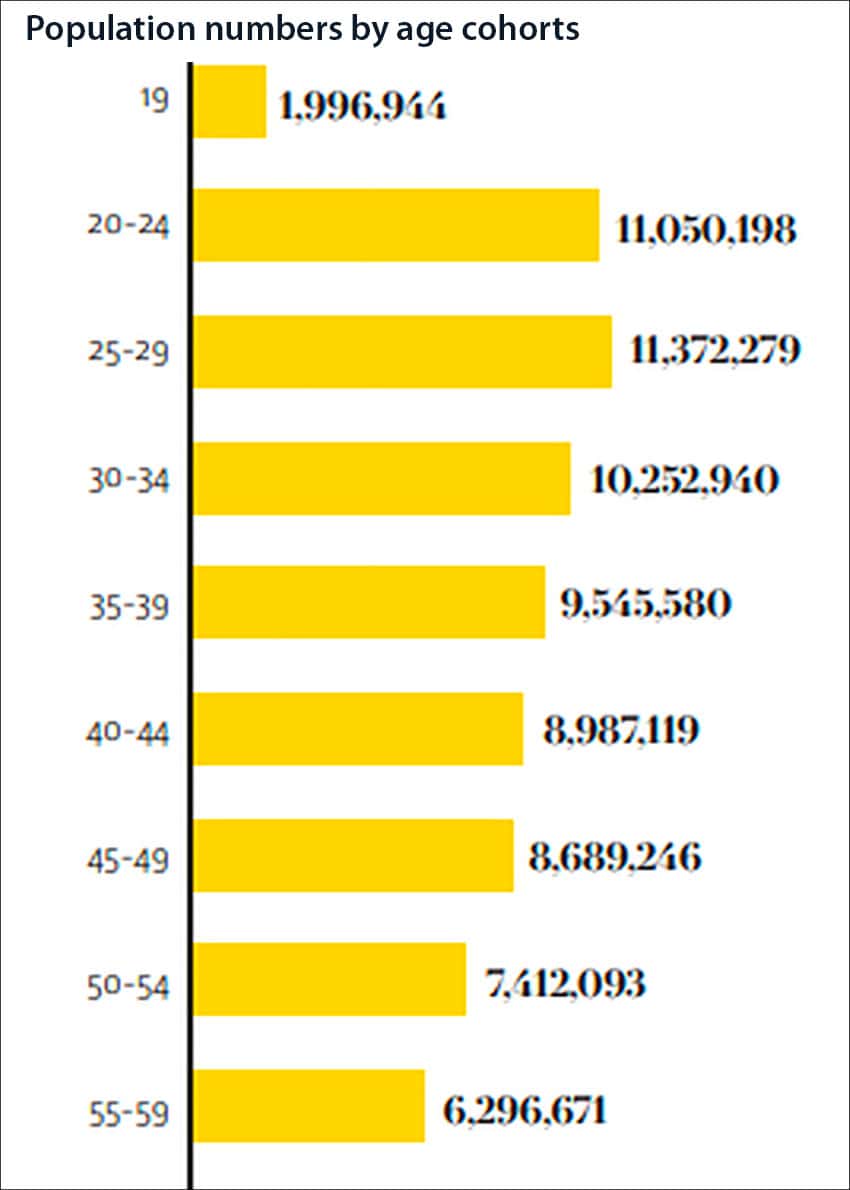The results of municipal, state and federal elections in June could depend heavily on the political preferences of young people, some of whom will be voting for the first time this year.
According to the National Electoral Institute (INE), there are more than 14.68 million people aged 18 to 24 who currently have a voter ID card and are therefore eligible to vote in the June 6 elections, at which Mexicans will renew the entire lower house of federal Congress and elect municipal and state representatives, including 15 governors.
The cohort — made up of Generation Z members who are also known as digital natives and centennials — is the largest of any age bracket, according to INE data, meaning that if they go to the polls in large numbers, they could have a significant say in deciding who will govern in the coming years.
More than 3.6 million of those in the 18–24 bracket are 18 or 19 and therefore will have their first-ever opportunity to vote.
The second-largest cohort of eligible voters is those aged 25–29, numbering more than 11.37 million.

Consequently, there are just over 26 million eligible voters aged 18 to 29, a figure that accounts for about 28% of the almost 94 million voters.
Given their large numbers, young people are an important and attractive segment for candidates, said Rubén Darío Vázquez, an academic at the National Autonomous University.
He told the newspaper Milenio that many young people don’t have clear political allegiances so their votes are up for grabs by the various political parties that will contest the elections. Parties’ success or otherwise will depend on their capacity to persuade undecided voters to cast their ballot for them, Vázquez added.
“The parties should be very interested in convincing these first-time voters,” he said. “… But the political actors haven’t found the way to approach them.”
Vázquez predicted that parties will have a hard time winning the support of young voters, many of whom spend a lot of time online, because they must struggle to keep up with the different ways young people communicate.
“The political class is only just understanding, and [still] with certain tentativeness, how to communicate on Facebook. … They haven’t realized that Instagram now dominates in the millennial community and that there is a new generation of voters on TikTok,” he said, referring to the video-sharing social networking service.
The academic nevertheless predicted that political advertising will flood social media during the campaign period, which officially began on Sunday. The bombardment of information will test young people’s analytical skills, he added.
“They’re digital natives, but they don’t necessarily have the skills to … distinguish between correct and incorrect information. One example of this was Pizzagate … in the 2016 presidential election in the United States, in which a rumor about a supposed people-trafficking and child pornography ring [operated by] the Democratic Party was believed by a large number of social media users,” Vázquez said.
This year’s elections will be the largest ever in Mexico. The ruling Morena party is seeking to maintain its majority in the lower house of Congress while opposition parties, three of which have banded together, are determined to wrest control and thus scuttle President López Obrador’s legislative agenda.
Among the 15 states where voters will elect new governors are Baja California, Chihuahua, Guerrero, Michoacán and Zacatecas.
Source: Milenio (sp)
